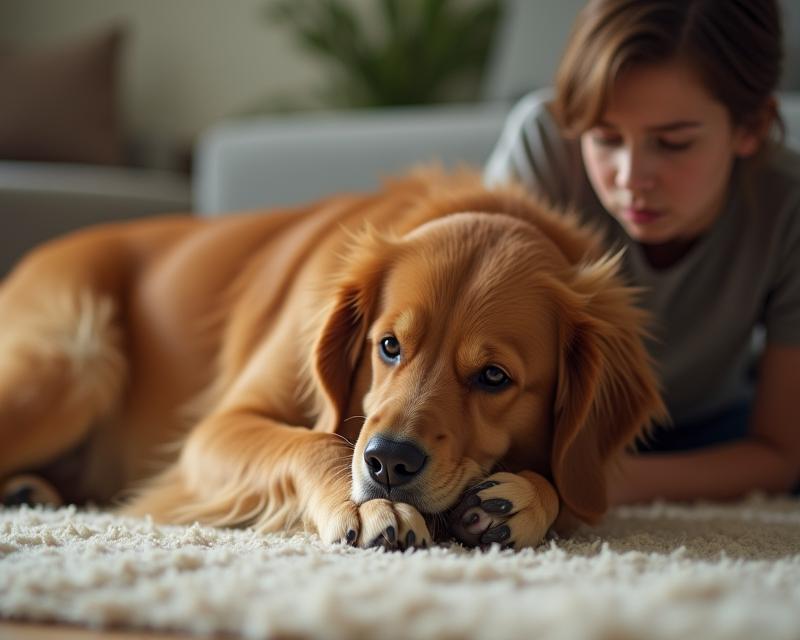Is Your Dog Over-Grooming? What to Do!
Publish in Health el 28/06/2025 19:18
Is Your Dog Over-Grooming? What to Do!
It's perfectly normal for dogs to groom themselves! It’s how they stay clean and comfortable. But sometimes, grooming can become *excessive*. If you've noticed your furry friend spending an unusual amount of time licking, chewing, or scratching, it might be a sign of something more going on. As loving pet parents, it's important to understand why this might be happening and how to help our canine companions.

Why the Extra Licking?
Excessive grooming, also known as alopecia X or psychogenic alopecia, can stem from a variety of causes. One common reason is allergies! Just like humans, dogs can be allergic to food, pollen, dust mites, or even certain fabrics. These allergies can cause itchy skin, leading to relentless licking. Another possibility is skin irritation from things like dry skin, infections (bacterial or fungal), or parasites like fleas or ticks. Sometimes, excessive grooming can even be a sign of anxiety or stress. Changes in the environment, separation anxiety, or loud noises can all trigger this behavior. It’s also worth considering pain! If your dog has pain in a certain area, they might lick or chew at it to try and soothe themselves.
What Can You Do?
First, a trip to the veterinarian is crucial. Your vet can perform a physical exam, skin tests, and blood work to rule out underlying medical conditions like allergies, infections, or hormonal imbalances. They can also identify any potential pain points. Once medical causes are addressed, you can start tackling the behavioral aspects. If allergies are identified, your vet might recommend dietary changes or medication. For anxiety, creating a calming environment, providing plenty of exercise and mental stimulation, and even using calming aids like pheromone diffusers or anxiety vests can be helpful.
Don't punish your dog for excessive grooming! This will only increase their anxiety and could worsen the problem. Instead, focus on providing a comfortable and safe environment, and work with your vet to find the root cause. Regular brushing can also help remove loose fur and distribute natural oils, which can soothe the skin and reduce the urge to lick. And remember, patience is key! It may take time to identify the cause and find the right solution for your dog. With a little detective work and a lot of love, you can help your furry friend feel comfortable and happy in their own skin.
When to Seek Immediate Veterinary Attention
While occasional licking is normal, seek immediate veterinary attention if you notice any of the following:
- Redness or inflammation of the skin
- Hair loss
- Bumps, sores, or scabs
- Excessive scratching or biting
- Lethargy or loss of appetite





